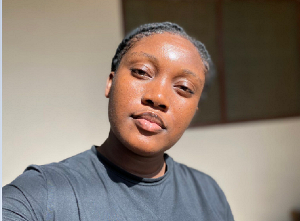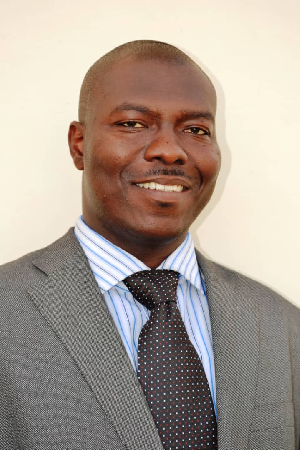- Home - News
- TWI News | TV
- Polls
- Year In Review
- News Archive
- Crime & Punishment
- Politics
- Regional
- Editorial
- Health
- Ghanaians Abroad
- Tabloid
- Africa
- Religion
- Election 2020
- Coronavirus
- News Videos | TV
- Photo Archives
- News Headlines
- Press Release
General News of Wednesday, 16 April 2003
Source: gna
I refused to sanction death sentence for Pianim
A panel member of the tribunal that tried Mr Kwame Pianim, an economic consultant, on charges of treason, said on Tuesday that he became a target of military attack after he refused to return a verdict of death on Pianim.
Ex-Corporal Charles Nkrabea Opoku Ware, now a tae-kwan-do instructor with a security firm, said Kwamena Ahwoi, then co-ordinator of the tribunal, openly declared his anger at him after interviewing other panel members who were then on recess at Akosombo.
Then 23 years old, Ex-Corporal Opoku Ware said he quoted PNDC Law 24, which, he said, enjoined the tribunal not to declare a person guilty whenever there was one uncorroborated evidence.
He said after he had told Ahwoi his reason, he became annoyed and angrily told him that he was surprised that he a soldier, was pardoning Pianim, who was a security threat, a financier of coups and would turn around to stage another coup.
Ex-Corporal Opoku Ware said soon after that Ahwoi angrily left and the panel members packed their bags and returned to Accra. He said after the interview, Nana Addo Aikins, chairman of the tribunal, said they should rewrite the judgment and call for a death sentence by firing squad, but he refused.
Under normal circumstances, death sentence could not be carried out if panel members were not unanimous on the decision, Ex-Corporal Opoku Ware said. He said when he arrived in Accra he found that his residence at State House had been fired into.
Ex-Corporal Opoku Ware said he consulted ASP Antwi Diabour, the oldest panel member, who advised him not to attend the tribunal hearing on the day of the judgement. Ex-Corporal Opoku Ware said he went into hiding at his wife's house after the judgement, adding that ASP Diabour informed him after the judgement that soldiers had been asked to shoot him on sight.
He said he used his mother in law's 23,000 cedis, and together with his wife escaped to neighbouring La Cote d'Ivoire, where they faced a very hard life. Ex-Corporal Opoku Ware said the refuges there did not accept him because of his association with the public tribunal.
He stayed in exile for 17 years and on his return he was given his discharge book from the Armed Forces after which he made efforts to get compensation. He was declared Absent Without Official Leave (AWOL).
Samuel Addae Amoako, a former National Organiser of the People's National Party (PNP), prayed the Commission for the removal of the Indemnity Clause in the Constitution. He said he was invited by a long time friend to join the PNDC just after the 31 December Coup.
However, Amoako condemned the coup and the personalities who executed it and made a public announcement denouncing the coup the day after it was launched. He said the "coup plotters moved to kill me" adding that a few days after the dust of the coup had settled, soldiers moved into his house and shot and wounded him in the groin.
Good Samaritans, including Kweku Baako Junior, the late Tommy Thompson, Kwesi Pratt Junior and one Stanley Amattoe came to his rescue. After unsuccessful attempts to take refuge at the residence of the British High Commissioner he was rushed to Korle Bu Teaching Hospital for the dressing of his wound.
Amoako said soldiers came to the Hospital to look for him to kill him, but the ingenuity of one of the health personnel who attended to him saved him. He later left the country, but indicated he had information that Kwesi Pratt was behind the soldiers' search for him at the Korle Bu Hospital.
Amoako condemned the December 31 Revolution and its leader in very strong language and prayed the Commission for the return of his brand new Mercedes Benz car. He also requested for compensation for his niece who, he said, was raped many times by one Kwesi Aidoo, a commando, in his house, which was used by cadres. He said Aidoo eventually made her pregnant.
Amoako also said his house must also be rehabilitated. George Obeng, a tailor from Mankessim, corroborated the story of Madam Afia Samiah, a baker at Akim Oda, who had earlier told the Commission of the seizure by soldiers of 400 bags of flour she had bought for a bakers' co-operative.
She had told the Commission that she was stripped naked, booted and her vehicle set afire. Obeng, who was Madam Samiah's nephew and was also manhandled by the soldiers when they seized the flour at Weija Barrier, complained of sight problems and said he had become hypertensive from the harrowing experience.










